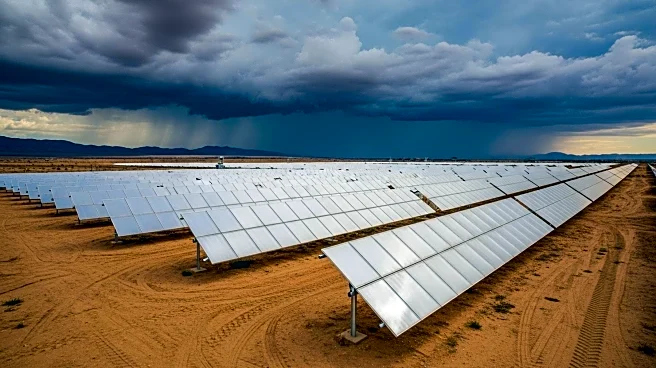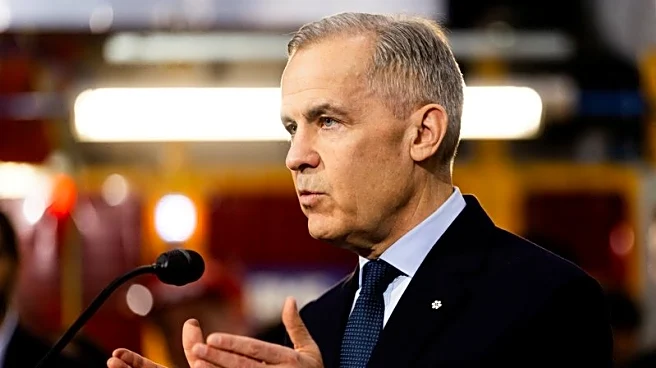What's Happening?
The Trump administration has canceled the largest proposed solar project in the United States, known as the Esmerelda 7, which was set to generate up to 6.2 gigawatts of energy in rural Nevada. This project, initially supported by the Biden administration, aimed to utilize 118,000 acres of federal land for solar arrays and energy storage. The Interior Department's Bureau of Land Management recently changed the project's status to 'canceled' on its federal permitting webpage, citing routine discussions with developers. Despite the cancellation, developers may submit individual project proposals for approval, although this process could be lengthy due to environmental impact analyses. The project faced opposition from conservation groups concerned about its impact on desert wildlife habitats.
Why It's Important?
The cancellation of the Esmerelda 7 project has significant implications for the U.S. energy sector, particularly in the context of rising electricity costs and the growing demand for renewable energy. The project was expected to contribute substantially to the electrical grid, addressing the increasing energy needs driven by AI-related data centers and residential consumption. The decision has drawn criticism from both Republican and Democratic politicians, highlighting concerns about losing ground in the global energy race, particularly against China. The move also affects Nevada's economy, which benefits from solar energy as a major economic driver, with the state having the most solar jobs per capita.
What's Next?
Developers involved in the Esmerelda 7 project, such as NextEra Energy, have expressed their commitment to pursuing the project and engaging with the Bureau of Land Management. They may submit individual proposals for approval, although the process could be prolonged due to environmental assessments. Political leaders, including Nevada's Democratic senators, have urged the Interior Secretary to clarify the project's future, emphasizing the importance of transparency in renewable energy initiatives. The broader impact on U.S. energy policy and the potential for increased household energy bills remain areas of concern.
Beyond the Headlines
The cancellation of the Esmerelda 7 project raises ethical and environmental questions about balancing renewable energy development with conservation efforts. The project's location in a desert habitat home to species like desert tortoises and Joshua trees highlights the ongoing debate over land use for renewable energy versus biodiversity preservation. Additionally, the decision reflects broader political dynamics and regulatory challenges facing renewable energy projects in the U.S., potentially influencing future policy directions and industry strategies.












